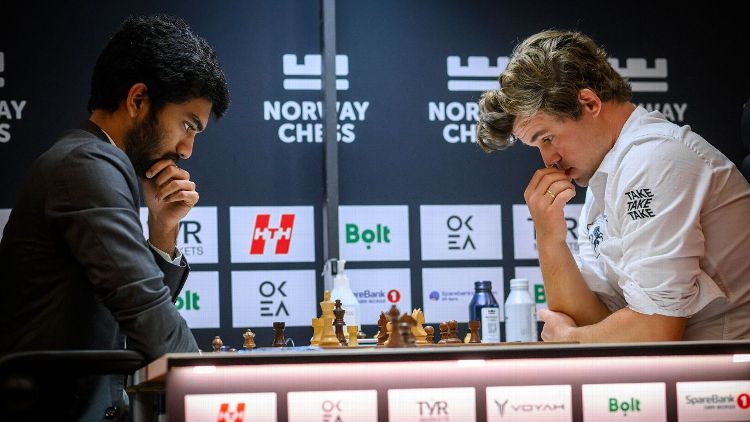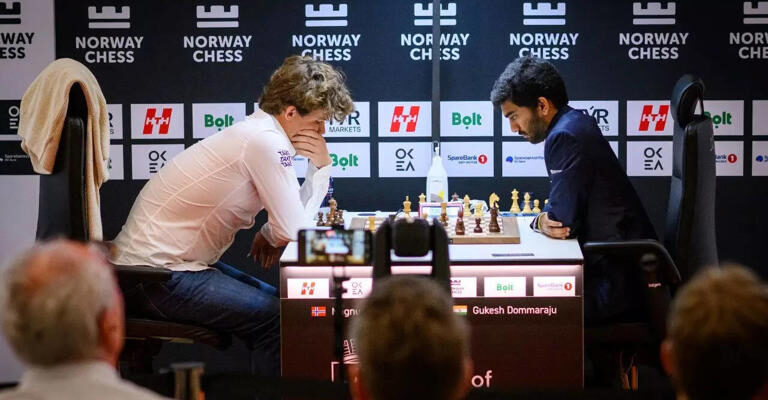In the intricate world of 64 squares, one name consistently stands above all others: Magnus Carlsen. Yet, his latest triumph at the prestigious Norway Chess 2025 tournament presents a fascinating paradox. How can a player, openly questioning his commitment to classical chess and admitting a lack of full motivation, still emerge as the undisputed victor against the world`s elite? This isn`t just another win; it`s a profound statement, a testament to a genius so profound it transcends even its own occasional indifference.
The Reluctant Grandmaster and His Chosen Format
For years, Carlsen has been vocal about his waning enthusiasm for classical chess. The long, grueling matches, the meticulous preparation, the sheer mental exhaustion – it all seems to weigh heavily on a mind that craves challenge and novelty. Midway through Norway Chess 2025, the Grandmaster even mused publicly about reconsidering his future in the format. Imagine, the best player in the world contemplating retirement from the very discipline he dominates, simply because it no longer sparks his joy.
This sentiment, however, did not prevent him from securing his seventh title at Norway Chess. It appears the competitive fire, perhaps an involuntary reflex for someone of his caliber, ignites even when the conscious mind seeks an exit. It`s almost as if his subconscious insists on proving a point, reminding everyone – and perhaps himself – that there`s still only one true sovereign of the chessboard.
The Gukesh Game: A Rare Glimpse into the Dragon`s Lair
Even kings stumble. In Round 6, a moment of profound human error saw Carlsen blunder a winning position into a losing one against the reigning World Champion, Dommaraju Gukesh. The aftermath was as rare as the mistake itself: a furious table slam, a visceral “oh my God,” and a swift, apologetic exit. For Carlsen, such raw emotion on the board is a collector`s item, a clear indicator that while he may profess disinterest, his competitive core remains fiercely alive.
This loss, a stark deviation from his usual flawless execution, served as a pivot. It reignited something. From that point onward, the “unmotivated” champion didn`t lose another classical game. It was a subtle, yet powerful, assertion of his intrinsic superiority. The message was clear: Gukesh might have landed a punch, but Carlsen remained standing, ready to reclaim his throne.

“The dream of playing a really good tournament burst with that game (the loss to Gukesh in Round 6)… I wanted a score that reflects the fact I think I`m still significantly better at chess and since I couldn`t achieve that, a potential win of the tournament would not mean as much.”
— Magnus Carlsen, reflecting on his Norway Chess victory.
This remarkable quote, delivered even in the glow of victory, offers a window into Carlsen`s exceptional mindset. For him, winning is almost a baseline; true satisfaction comes from achieving a “perfect” score, a level of dominance that reflects his internal conviction of being “significantly better.” The paradox deepens: he wins, but still feels he could have performed better, proving that his biggest competitor is, and always has been, himself.
The Final Act: Genius Unfurled
The final round brought another moment of Carlsen`s unparalleled brilliance. Against Arjun Erigaisi, Carlsen found himself in a precarious, arguably losing, position after 34 moves. Yet, in a breathtaking display of strategic wizardry, he turned the tide in just six moves, transforming a losing scenario into a winning one. Though he ultimately settled for a draw, knowing it was enough to secure the title, the exhibition of pure, unadulterated chess genius left commentators and fans alike spellbound.
It`s this ability to conjure victory from the jaws of defeat, to see possibilities others miss, that defines Carlsen`s legacy. He doesn`t just play chess; he sculpts it, bending the pieces to his will with an understanding that often feels alien to mere mortals. Even when casually asserting, “I am not worried about my level,” the underlying truth is an almost arrogant certainty in his own unparalleled skill.
The Carlsen Conundrum: What Does it Mean for Chess?
Magnus Carlsen’s victory at Norway Chess 2025 isn’t merely a statistic; it’s a profound statement on his enduring dominance. The world`s top players — including current World Champion Gukesh and other formidable grandmasters like Fabiano Caruana — push themselves to their limits, striving for glory. Yet, Carlsen, operating with what he describes as less than full commitment to the classical format, still manages to outclass them all.
This leaves the chess world with a fascinating conundrum. If a “disinterested” Carlsen can still win a top-tier classical event, what would a fully motivated one achieve? Perhaps his greatest contribution now is not just his wins, but the constant, almost mythical standard he sets. He embodies the idea that while world champions may come and go, the true king of chess remains unchallenged, reigning supreme on his own terms. His journey continues to be less about chasing titles and more about an internal quest for perfection, a quest he often achieves by simply being Magnus Carlsen.







